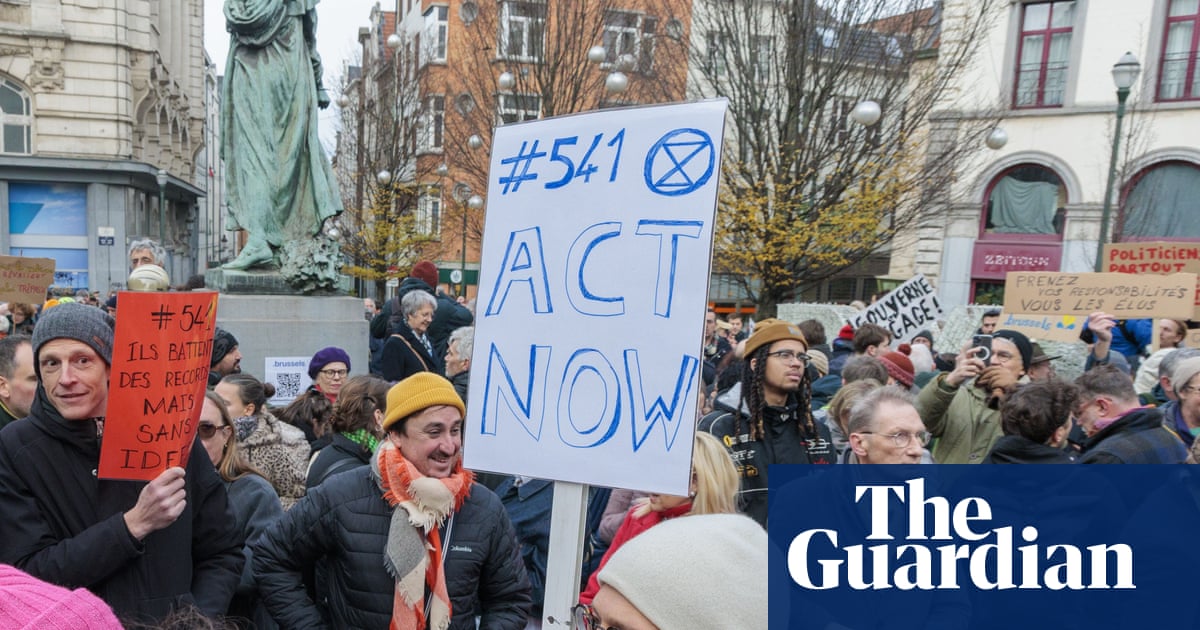Crises can liberate governments. Collapses in popularity, huge dilemmas about public spending, foreign policy emergencies, poll surges by opponents and the prospect of losing office: all can persuade even previously cautious administrations to change their direction and rhetoric – or simply say more clearly why they are in power.
Politicians sometimes enjoy being bolder. Commonly seen as always calculating and never spontaneous, some are in fact relieved to stop filtering their public words and finally speak their minds. At the Labour conference this week, fringe meetings were refreshingly, sometimes startlingly, full of ministers, MPs and recent government advisers talking frankly about the government’s problems and the toxicity of modern politics.
Even the business secretary, Peter Kyle, usually slick and studiedly unflustered, admitted at an event hosted by Labour Together that “the public know that we have a big problem in the economy”, and that “our politics is going through turmoil”. After 15 months of governing as if it had enough time and public attention to be understated and methodical, Labour is switching to a more urgent, potentially more realistic approach.
The most renowned example of a British government using crises to reinvent itself remains Margaret Thatcher’s. At a similar stage in its life, in 1981, it had lost over a third of its original support. Like Keir Starmer’s government, it was struggling to revive the economy, control inflation, raise taxes and prevent riots. Then Argentina recklessly invaded the Falklands in 1982, and Thatcher was handed an opportunity to relaunch her premiership as a shameless but powerful patriotic project.
While there were endless flags and patriotic phrases at Labour conference, a conveniently symbolic and winnable war feels unlikely in today’s more heavily armed and geopolitically chaotic world. And Starmer is arguably in an even bigger hole than Thatcher in 1981. It’s constantly pointed out far how Labour’s poll ratings have fallen since the election, from 34% to about 20%, yet it’s less remembered that during the campaign’s first days, in May 2024, Labour was at 45%. Its decline may well be unprecedented, in rapidity and scale, in the history of elected British governments.
Labour’s crisis of electoral, moral and financial credibility is now causing what used to be a heavily disciplined party to criticise itself, in ways that could help save the government – or hasten its end. Andy Burnham’s call for a more leftwing but also more broad-church administration dominated conversations in the queues for conference events, despite all the confident assurances from Starmer loyalists that the mayor of Greater Manchester had blown his leadership chances.
Yet away from his packed fringe appearances there were many other, more surprising, would-be tellers of home truths. The recently elected MP for Bassetlaw, Jo White, called the energy secretary Ed Miliband’s promise that clean power would reduce energy bills within a few years “complete nonsense” – ignoring his high standing with environmentalists and Labour members.
At the same event, Peter Hyman, until last year a key Starmer adviser, said that the current “age of insecurity” could not be countered by a government offering “security” – a political theme long favoured by Starmer and the chancellor, Rachel Reeves – because voters no longer believe politicians can provide it. Instead, Hyman argued, the government should ensure that voters were “tooled up” with the skills to cope with an ultra-competitive, unstable world.
Fringe speakers elsewhere offered more leftwing diagnoses and solutions. The MP for Pendle and Clitheroe, Jonathan Hinder, part of the socially conservative, economically interventionist Blue Labour group, said that the government should stop “the looting of our common assets” by privatised utilities and private contractors for public services. “Working-class voters have leftwing economic values,” he said, and the government should favour “labour over capital”. Even during Jeremy Corbyn’s leadership, supposedly erased from Labour’s consciousness, it was rare to hear such blunt pro-worker language.
What might emerge from the party’s candid and confrontational new mood? The belated but welcome attacks on Reform UK by Starmer and his ministers suggest that the switch is not just a fleeting fashion from the conference fringe. But there is a risk that the new mix of policies and stances – more egalitarian economic rhetoric, yet continuing deference towards the financial markets; anti-racism, yet growing authoritarianism towards immigrants – will simply produce a mess.
As someone who arrived in the intensely tribal House of Commons relatively late in life, whose personal history features both deprivation and privilege, and who believes in competence rather than ideology, Starmer has a tendency to be both leftwing and rightwing at the same time. That’s not necessarily a weakness. Many voters have eclectic and contradictory politics. But often, “to govern is to choose”, as the 1950s French prime minister Pierre Mendès-France pithily put it.
after newsletter promotion
Next month’s budget will be one such moment. Another will be next May’s elections for the Scottish and Welsh parliaments and many English mayoralties and councils, when the party’s remaining strongholds will need a coherent and highly focused Labour campaign if they are not to fall. “Across this country,” said the new home secretary, Shabana Mahmood, in her conference speech, “people feel like things are spinning out of control.”
If Labour fails to produce such a campaign in only seven months’ time, then panic may set in, and the ferment at this week’s conference fringe may turn out to have been the first phase of a post-Starmer age. As well as Burnham’s leadership ambitions, the conference was also shadowed by the likely aspirations of Mahmood, Kyle, the health secretary, Wes Streeting, and Angela Rayner, whose fall from prominence already feels temporary.
Whether under Starmer or someone else, it’s possible that more frankness and open-mindedness will save the government, rather than make it look fatally divided. This week at least, his premiership seems energised. Labour does have some decent policies, and most of his potential successors are strong communicators. With the Conservatives weaker than for decades, and Reform with no experience of waiting for and then contesting a general election as favourites – as its thin-skinned response to Labour’s attacks is showing – it may be less difficult for Labour to get re-elected than seems the case now.
But after 14 years of often disastrous Tory government, and with many voters still wanting a broadly left-of-centre country, squeezing back in for a second term would not be a triumph for Labour.
-
Andy Beckett is a Guardian columnist

 2 months ago
63
2 months ago
63

















































